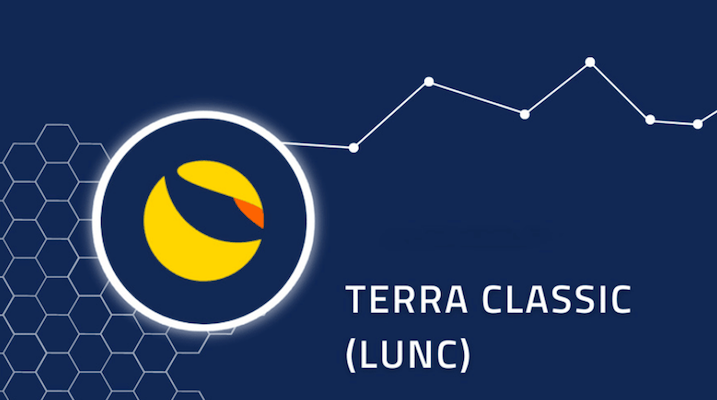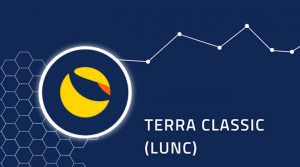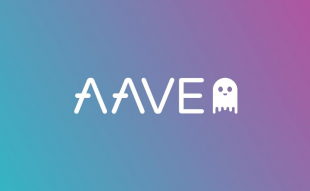Join Our Telegram channel to stay up to date on breaking news coverage
LUNC has increased by more than 171% over the past week due to rumors that a 1.2% burn tax will be imposed on all transactions. However, the most recent initiatives to restart the failed project might simply be a sophisticated pump and dump.
Terra Classic’s Resurrection
With the help of its community, Terra Classic is seeking to reclaim its significance. Many people believed Terra was doomed after the May crash of the UST stablecoin. Do Kwon, the controversial CEO of Terraform Labs, moved fast to create a new Terra network, relegating his failure to the name “Luna Classic,” and renaming the new chain’s native coin with the ticker LUNA.
However, attempts to resurrect the original blockchain have made modest progress since Terra’s unfortunate fall. In June, a proposal to start burning a portion of the Terra Classic transaction fees and increase validator rewards showed that there was still motivation to develop the chain despite it being abandoned by Terraform Labs. A second proposal to begin burning 1.2% of all traded tokens was approved by the community, but no information was provided on how it might be put into practice.
The native coin of Terra Classic, LUNC, carried on trading throughout. Volatility was significant, but given the limited level of liquidity, it wasn’t entirely unexpected. The small number of active developers in the Terra Classic ecosystem was sufficient to encourage rumors. Hope for LUNC to one day trade at a single penny or, for the more ambitious (read: foolish), a dollar, as is frequently the case with cryptocurrency tokens that trade at a fraction of a cent, began to take hold. A move like that would increase LUNC’s market capitalization to trillions of dollars, but even its biggest shills would not admit that.
Today, a recent suggestion from member of the Terra community Edward Kim has rekindled interest in Terra Classic. The plan put forth by Kim outlines a practical way to enact the 1.2% burn tax on all on-chain transactions. He outlines the potential benefits and drawbacks of such an update in his post on the Terra Classic forums and encourages comment from other community members. As a result, LUNC has reached a fresh local high and is trading at its highest level since the May crash.
But what do the transactions that burn and tax Luna Classic intend to accomplish? How will the neighborhood be able to impose the centralized exchange tax? These are just a few of the issues that the Terra Classic community must deal with before an event that may cause a lot of instability.
Burn Tokens to Get Cash
Burning tokens is a straightforward concept to understand. People will be more inclined to spend more money when there is a decrease in the supply of something while there is no change in demand. The fact that many of the most well-known and widely used crypto projects include a burn function in their tokenomics is not a coincidence. To the delight of holders, Shiba Inu’s developers frequently burn portions of the token’s supply, and Binance’s BNB likewise performs token burns every quarter.
Burning tokens, however, frequently has minimal effect on actual supply and demand measures. In the instance of BNB, the majority of the tokens destroyed come from a reserve the exchange has kept since its inception. The fact that Binance claims to have burned BNB tokens worth millions of dollars makes for a catchy story, even though such tokens were never actually in use. Therefore, it is not unexpected that past occurrences of this nature have had no effect on the price of BNB.
Token burns do, however, succeed in developing a compelling story that even the most inexperienced cryptocurrency investor can understand and support. It doesn’t matter whether a burn mechanism will sharply reduce the supply of a token and drive up prices. When a token burn is sufficiently hyped, the price will frequently increase as a result of individuals purchasing in anticipation of a perceived decrease in supply.
For Luna Classic, the proposed token burn tax will probably only serve to make a compelling story to entice gullible investors. Off-chain trade in LUNC primarily takes place on controlled exchanges like Binance, Kucoin, and Gate.io. Thus, only a very small portion of LUNC would be destroyed even if the Terra Classic community were to successfully impose a 1.2% burn tax on transactions. While many members of the LUNC community have petitioned exchanges like Binance to implement their burn tax, it looks extremely unlikely that any will.
It’s also important to note that wealthy holders and validators have been benefiting from Terra Classic’s exorbitant staking incentives since since it reinstated staking earlier this year. Since the chain’s collapse, fewer users have bothered to delegate their LUNC to validators, so rewards are distributed among them more evenly, resulting in an average annualized return of almost 37%. These early stakers have fully loaded bags ready to be dumped on new investors who believe that the imminent token burn for Luna Classic would reduce the supply and drive the price up to $1.
At the end of the day, Luna Classic has very little intrinsic worth, not even at fractions of a cent. Serious developers have no motive to begin constructing on the chain, and those already committed appear to treat it more like a hobby than a worthwhile investment. Of course, this doesn’t rule out the possibility of another parabolic rise for LUNC, but it also means that it might fall precipitously if the people driving up the price decide to leave. A word of caution to any gamblers out there: don’t be found carrying the bag when the music stops. And it’ll stop.
A note on the Tamadoge coin
Nowadays, enthusiasts of cryptocurrencies have a new alternative for high growth in the form of the Tamadoge ecosystem. The idea is similar to Tamagotchi in that users can buy a pet, feed it, and then engage in combat with it once it has grown up. Because it is a play-to-earn (P2E) platform, players may make money while having fun and moving up the leaderboard by gaining Doge points. TAMA is a meme coin with utility that will be used to discover all of the special features of the platform.
Apart from that, there is a lot to anticipate with the release of the augmented reality software (AR app) in the fourth quarter of 2023. The ability to be close to their pets while using the app will make it much easier for players to commit to maintaining their well-being.
As a result, a great deal of people are turning to TAMA for investments because of the excitement it has generated as a result of the current level of success it is enjoying. In a few of weeks, Tamadoge raised more than $11.7 million, which is unquestionably a success that all investors want to be a part of. A little over 70% of the presale tokens have already been purchased, indicating that there isn’t much time left for investors to purchase because the tokens are moving quickly. Investors should anticipate benefits because the presale is being conducted in stages, with each tranche bringing a price increase.
Tether (USDT) may be used to purchase TAMA tokens, and as of right now, investors can get 33.3 TAMA for 1 USDT. There will be 2 billion tokens total available for purchase, but only half of those will be made accessible to investors during the presale, according to the official website. After TAMA is listed on cryptocurrency exchanges, the remaining money will become available. TAMA is a deflationary currency, therefore 5% of the total supply will be burned, quickly pushing up the price.
Investors should do their own research and and consider all factors before making a decision with potentially high reward. The full paper and roadmap for TAMA can be read here.
Related
- Terra Luna Classic (LUNC) Spikes 80% This Month – Should You Buy?
- Terra Classic Price Momentum Could Take LUNC up Another 1,000%
Join Our Telegram channel to stay up to date on breaking news coverage


